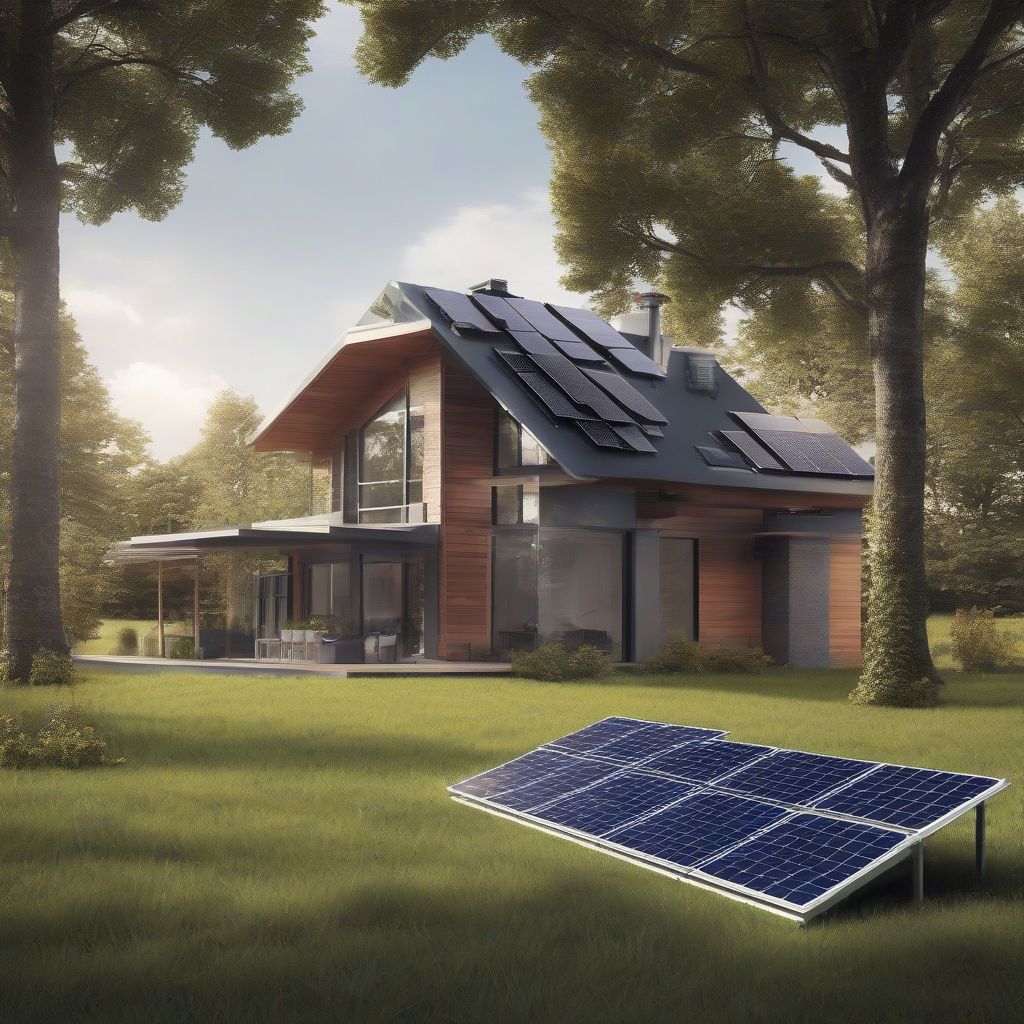Imagine stepping into your home on a scorching summer day, greeted by a cool, refreshing breeze. Or picture yourself cozying up on the couch during a winter blizzard, enveloped in warmth. Achieving this perfect indoor climate while minimizing energy consumption is the dream, right? That’s where choosing the most efficient heating and cooling systems comes into play.
Understanding Efficiency in HVAC Systems
Before diving into the specifics, let’s understand what makes a heating and cooling system truly efficient. Efficiency is measured by how effectively a system converts energy into heating or cooling power. This is often represented by SEER (Seasonal Energy Efficiency Ratio) for cooling systems and AFUE (Annual Fuel Utilization Efficiency) for heating systems. Higher ratings translate to greater energy savings and lower utility bills.
SEER Ratings Explained
SEER measures the cooling output of an air conditioner over a typical cooling season, divided by the total electric energy input. A higher SEER rating indicates greater efficiency. Think of it like miles per gallon for your car – the higher the number, the further you can go on a single tank of fuel.
AFUE Ratings Explained
AFUE, on the other hand, measures how efficiently a furnace converts fuel into heat over a year. An AFUE of 90% means that 90% of the fuel’s energy is converted to heat, while the remaining 10% is lost through the chimney or other vents.
Exploring the Most Efficient Options
Now, let’s explore some of the most efficient heating and cooling systems available today:
High-Efficiency Heat Pumps
Heat pumps are a versatile option that can provide both heating and cooling. They work by transferring heat from one location to another, like a refrigerator in reverse. High-efficiency heat pumps, particularly those with variable-speed compressors, can significantly reduce energy consumption compared to traditional systems. “A well-maintained heat pump can be a game-changer for your energy bills,” says renowned HVAC specialist, Dr. Emily Carter, author of “Sustainable Home Comfort.”
Geothermal Heat Pumps
Geothermal heat pumps take the efficiency of standard heat pumps a step further by utilizing the stable temperature of the earth. They exchange heat with the ground, providing highly efficient heating in the winter and cooling in the summer. While the initial installation cost can be higher, the long-term energy savings and environmental benefits are substantial.
High-Efficiency Furnaces
For colder climates, high-efficiency furnaces are a crucial component of an energy-efficient home. Look for models with AFUE ratings of 90% or higher. These furnaces use advanced technologies like condensing flue gases to extract more heat from the fuel, minimizing waste.
Ductless Mini-Splits
Ductless mini-splits offer a flexible and efficient solution for both heating and cooling individual rooms or zones. They eliminate the energy losses associated with ductwork, making them ideal for additions, renovations, or homes without existing duct systems.
Smart Thermostats
While not a heating or cooling system in itself, a smart thermostat plays a vital role in optimizing energy efficiency. These thermostats learn your heating and cooling preferences and automatically adjust the temperature to minimize energy waste while maintaining your comfort. They also provide valuable insights into your energy usage, empowering you to make informed decisions.
Factors to Consider When Choosing a System
Choosing the most efficient system isn’t just about SEER and AFUE ratings. Consider these factors as well:
Climate
Your local climate plays a significant role in determining the best system for your home. Heat pumps excel in moderate climates, while furnaces are more suitable for colder regions.
Home Size and Insulation
Proper insulation is crucial for maximizing the efficiency of any heating and cooling system. A well-insulated home requires less energy to heat and cool, resulting in lower operating costs.
Budget
While high-efficiency systems often come with a higher upfront cost, the long-term energy savings can offset the initial investment. Consider the lifecycle cost of the system, including installation, maintenance, and operating expenses.
 Efficient Heating and Cooling Systems
Efficient Heating and Cooling Systems
Maximizing Efficiency with Proper Maintenance
Even the most efficient heating and cooling system can lose its effectiveness without proper maintenance. Regularly scheduled maintenance, including filter changes, cleaning, and inspections, ensures optimal performance and extends the lifespan of your system. “Think of it like regular checkups for your car,” advises Dr. Carter, “Preventive maintenance can prevent costly repairs down the road.”
Conclusion
Choosing the most efficient heating and cooling system is an investment in both your comfort and your wallet. By understanding the various options available and considering factors like climate, home size, and budget, you can create a comfortable and energy-efficient home. Remember, proper maintenance is key to maximizing efficiency and enjoying long-term savings.
What are your thoughts on energy-efficient HVAC systems? Share your experiences and questions in the comments below! Explore more energy-saving tips by checking out our articles on reducing energy consumption at home and the impact of energy policy on low-income communities. Together, we can create a more sustainable future.



